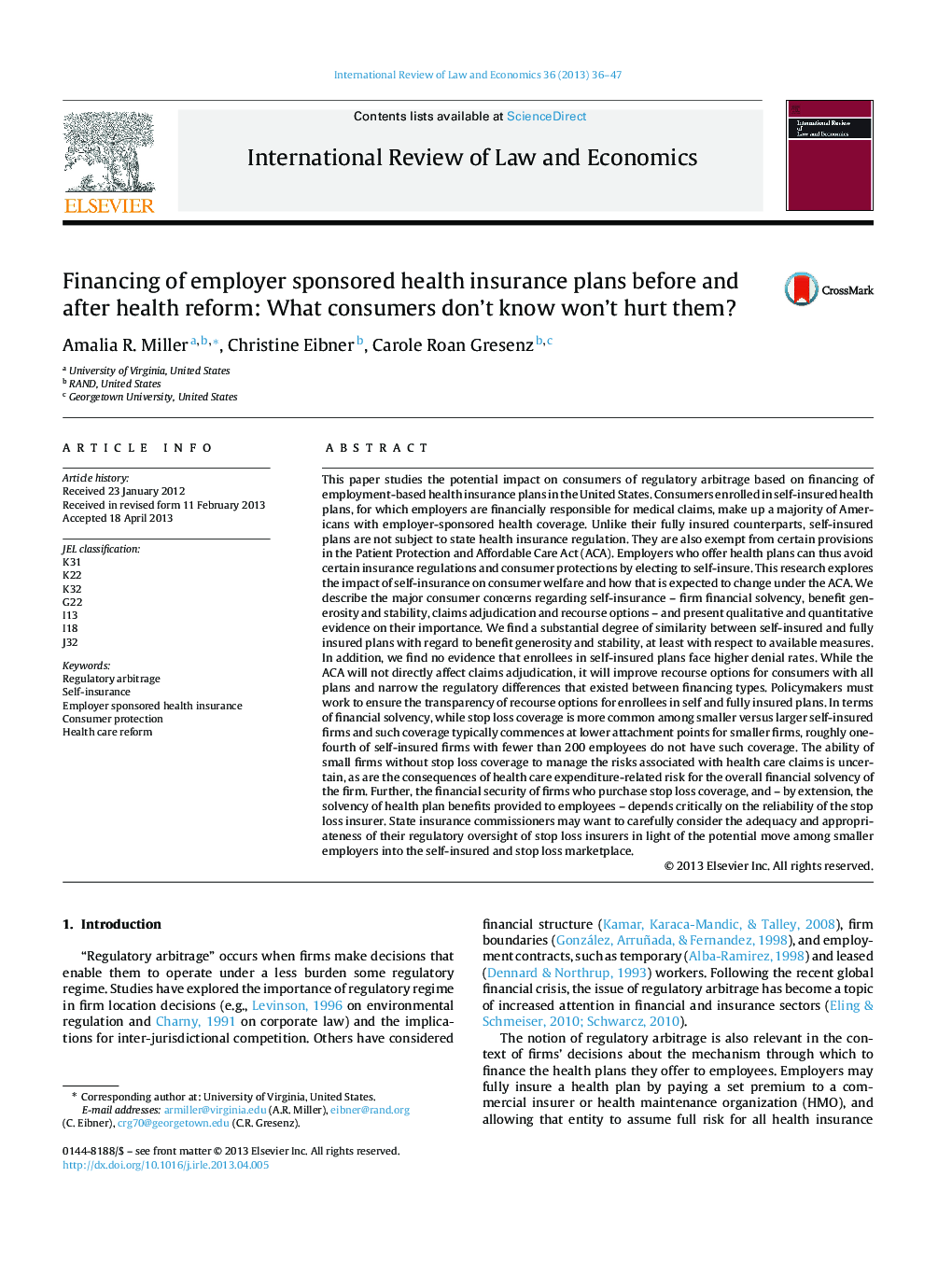| کد مقاله | کد نشریه | سال انتشار | مقاله انگلیسی | نسخه تمام متن |
|---|---|---|---|---|
| 5085760 | 1478065 | 2013 | 12 صفحه PDF | دانلود رایگان |

- Two distinct regulatory environments govern self and fully insured health plans.
- We use mixed-methods to study the impact of self-insurance on consumer welfare.
- We find similar benefits and claims denial rates in self- and fully insured plans.
- Differences in consumer recourse options are likely to narrow with health reform.
- Limited data on stop loss coverage leaves open questions about small firm solvency.
This paper studies the potential impact on consumers of regulatory arbitrage based on financing of employment-based health insurance plans in the United States. Consumers enrolled in self-insured health plans, for which employers are financially responsible for medical claims, make up a majority of Americans with employer-sponsored health coverage. Unlike their fully insured counterparts, self-insured plans are not subject to state health insurance regulation. They are also exempt from certain provisions in the Patient Protection and Affordable Care Act (ACA). Employers who offer health plans can thus avoid certain insurance regulations and consumer protections by electing to self-insure. This research explores the impact of self-insurance on consumer welfare and how that is expected to change under the ACA. We describe the major consumer concerns regarding self-insurance - firm financial solvency, benefit generosity and stability, claims adjudication and recourse options - and present qualitative and quantitative evidence on their importance. We find a substantial degree of similarity between self-insured and fully insured plans with regard to benefit generosity and stability, at least with respect to available measures. In addition, we find no evidence that enrollees in self-insured plans face higher denial rates. While the ACA will not directly affect claims adjudication, it will improve recourse options for consumers with all plans and narrow the regulatory differences that existed between financing types. Policymakers must work to ensure the transparency of recourse options for enrollees in self and fully insured plans. In terms of financial solvency, while stop loss coverage is more common among smaller versus larger self-insured firms and such coverage typically commences at lower attachment points for smaller firms, roughly one-fourth of self-insured firms with fewer than 200 employees do not have such coverage. The ability of small firms without stop loss coverage to manage the risks associated with health care claims is uncertain, as are the consequences of health care expenditure-related risk for the overall financial solvency of the firm. Further, the financial security of firms who purchase stop loss coverage, and - by extension, the solvency of health plan benefits provided to employees - depends critically on the reliability of the stop loss insurer. State insurance commissioners may want to carefully consider the adequacy and appropriateness of their regulatory oversight of stop loss insurers in light of the potential move among smaller employers into the self-insured and stop loss marketplace.
Journal: International Review of Law and Economics - Volume 36, October 2013, Pages 36-47